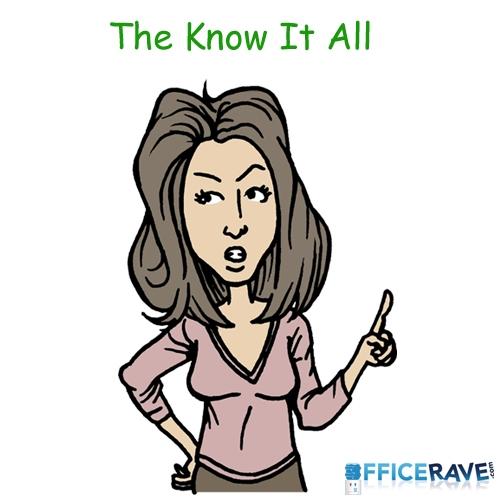I write this take because I have experience with all three personality attributes to some greater or lesser degree and the bad judgments people in my life have made about me as a result. It's easy to understand why there are so many misconceptions about these personality traits. That's because there is a lot of overlap between the three and one characteristic can be the 'trigger' factor that causes another.
It's not uncommon for a person to possess all three qualities, all of them feeding into one another and exaggerating the overall condition. So people tend to perceive, judge and advise these people that experience one or more of these traits according to a 'full package' of personality traits, rather than isolating the specific characteristics a person already possesses. I'm going to explain why this is a mistake after briefly defining the three different (but related) attributes:
Anxiety: 'a feeling of worry, nervousness, or unease about something with an uncertain outcome'.
Introversion: 'the inclination to draw energy from the inner world of ideas and self-reflection rather than the outside world of facts and people'.
Awkwardness: 'the quality of being causing or feeling uneasy embarrassment or inconvenience'.
#1. Anxiety

'Anxiety: a feeling of worry, nervousness, or unease about something with an uncertain outcome'
It's easy for a person who is naturally anxious to be perceived as an introvert or a socially awkward person. Why is that? Well, if a person is anxious about people, events or just leaving the house in general (agoraphobics) then he or she is likely to act in introverted and socially awkward manners.
He or she may have the natural desire to interact with lots of people and explore the world of facts and external qualities that an extrovert would have. As I am sure introverts will be dying to point out, an introvert does have these social desires also but introverts tend to be more inclined towards slow-paced and intellectual interactions with close people.
Extroverts - fascinated with the world of facts, people and events, simply adore exciting, fast-paced exchanges of small but interesting details about socially appropriate conversation topics and fascinating people. They are more interested in simple niceties not that this says anything about the extroverts intelligence - an extrovert can be of very high intelligence if they are more focused towards sharp, snappy but accurate judgments and they have strong emotional intelligence and understanding of people.
The anxious person may very well be more inclined towards these kinds of extroverted, fast-paced interactions about facts and people but because of that individual's tendency towards fear, they may have difficulty becoming fully immersed in the world that an outgoing person would usually experience. The anxious extrovert will engage in introverted behaviours - reading books, taking part in low-pressure discussions with close family members they feel comfortable around but not because they are naturally inclined towards introversion, far from it. This is already a complicated concept to wrap your head around before you take into account the other kind of personality trait - the ambivert or 'extroverted introvert' - and realise that most people do not fit onto a binary scale definition of 'extroversion vs. introversion'.
When it comes to social awkwardness, anxious people can again be mistaken for awkwardness. Because somebody with social anxiety tends to draw away from social interaction, they can certainly be perceived as awkward as well as anxious. But awkwardness - as I will explain in more depth later - is born from neither anxiety nor introversion but a lack of awareness.
People that create awkward situations for other people do so out of a lack of understanding of their own emotions, the emotions of other people and the norms and customs that underly much of social interaction ('the unwritten rules'). Now anxious people's 'awkwardness' can extend beyond merely avoiding social interactions. Sometimes a person is so preoccupied with their own negative emotions (the fear of throwing oneself into new situations) that these emotions become more relevant than the emotions other people are feeling.
When you throw an anxious person into a social situation against their will, they can become so withdrawn into their own box that they forget to look outside the world of their own thoughts and feelings and try to understand the rules and patterns of behaviour that everyone else around are already following. But when you take steps to remove that person's anxiety, their understanding of the world around them and other people's emotions can be just as naturally intuitive as most people's (if not more so). A person who is just socially awkward does not behave like this solely out of fear - or if he does, it's a different kind of fear altogether.
#2 Introversion

'the inclination to draw energy from the inner world of ideas and self-reflection rather than the outside world of facts and people'
The introvert certainly can enjoy social interaction as much as an extrovert but because their preferences are inclined to the sort of slow-paced, intellectual discussion already mentioned, the introvert will often be boxed in as someone that is either totally asocial/apathetic towards people in general OR as somebody that is afraid of social interaction. Neither of these generalizations are necessarily true but I will focus on the latter point about anxiety.
Sure, an introverted person could be naturally anxious in social situations, but there is no rule or requirement that this necessarily has to be the case. Quite the contrary: if you see somebody in a social situation that is more keen to read a book or check their phone, it does not necessarily mean that they prefer this to interaction and would rather be socialising. Not by any stroke of the imagination.
The other false assumption would be that the introvert is socially awkward. Perhaps if an introvert has less experience of interaction than the extrovert then they could very easily be awkward due to a lack of understanding about the unwritten rules that one picks up not just by intuition but also through experience - by being immersed in social situations. But it's foolish to assume somebody is socially awkward because of the logical or introverted nature of their interactions. It's often true that introverts can have very high, bullet-like perception of other people's emotions. They can certainly understand the unwritten rules and norms. What is different about the introvert is their preferred method of social interaction, and that's it.
#3 Awkwardness

'the quality of being causing or feeling uneasy embarrassment or inconvenience'
If you want to stereotype, then this guy is that person from the comedy sketch show that talks about his favourite movies in a philosophical convention of intellectuals. She's the person that tries to eat her dinner with the desert cutlery in a fancy restaurant. He's the professor that turns up to the wrong lecture theatre drunk after taking sneaky sips from his whiskey hip flask. Now I don't want to devote this section to ridiculing such a person that is socially awkward, oblivious and sometimes even comical.
This is because they are people just like you and me. The 'oaf' is already a target of comedians everywhere and seen by society at large as an individual that is very simple and easy to understand. You don't see step by step guides for alleviating social awkwardness like you for anxiety or for overcoming introversion. People take the latter types of personalities very seriously because that's precisely the emotions that are stereotypically invoked by anxious and introverted people.
The 'oaf' is just seen as somebody that either does not know or does not care about other people's feelings and the clown that somehow get's pie in his face by accident. And that's how they learn to see themselves: the class clown, the comedian, etc. They FIT THEMSELVES INTO this model and it's one of the saddest things that can happen to somebody because they will never be taken seriously and this cariacature is NOT who they are. This guy is not even someone who is mistaken for anxious or introverted: most people just think he's stupid. They do not see the underlying intelligence somebody like this can have or appreciate his reasons or motives for doing what he does. He wants people
Conclusion: Don't Generalise and Don't Give Bad Advice!

I will wrap this mytake up by asserting the importance of distinguishing between the three personality types. While you should not make the mistake of thinking their can be no overlaps, or that one attribute can trigger other qualities in certain social situations, what I will say is that people need to be aware of their own tendencies to generalise and lump personality types into one category.
For example, 'confidence' and 'be yourself' tend to be advice that do-gooders outside of this triangle of personality types often dish out. But such advice can mean radically different things to these different personality types.
To the anxious person, 'confidence' is outside confidence: the ability to immerse oneself in the kinds of exciting adventures and social interactions that person might like to experience but finds it difficult. To the introvert, 'confidence' is simply a belief in themselves, their own abilities and their own qualities. They don't necessarily desire the outer confidence and love of parties, places, things and people that an extrovert has.
To the awkward person, 'confidence' is often mistaken for bravery. Because they do not understand the consequences of behaviours that deviate certain norms and effect people's feelings, they do not see the fear behind acting in such a manner. They see their actions as brave and therefore confident and can't understand why it alienates themselves from other people. After all, the people rejecting them and trying to excuse themselves from social interaction with someone that's awkward - those are often the same people giving the advice 'be confident'.
They lack the awareness of their own emotions and the emotions of people around them to understand their own fear which has become numbed by their impercipience. If this was not so, they would have a healthy level of anxiety given their own lack of awareness of social impercipience and would understand 'confidence in a very different light. In fact, this is precisely what happens to a person suffering from social awkwardness when they are forced to become aware of their own fears: they tend to withdraw into a shell but one that is of a very different making than the shell of the old.
There are many other subjective interpretations of 'confidence' in fact: feeling comfortable with you are; being confident in that which you know and that which you do not; confidence that you are able to do something; a sensation of feeling relaxed and easy; the list goes on. Just because somebody thinks they know what confidence means does not, in fact, mean that THEIR particular definition of confidence is universal.
These are often people that summoned up the liquid courage at a party to ask a girl out and happened to be successful on that one occasion, so now they tell every single man on the planet that what they need is 'confidence'. Or the person that got the job because they were the only person who turned up for the interview, so they attribute their success to 'confidence'. Their shallow advice can have a devastating impact on somebody who has one of the three attributes I already described.
What Girls & Guys Said
Opinion
1Opinion
Really Impressive, 10/10
thanks
Share the first opinion in your gender
and earn 1 more Xper point!